

크리스마스는 세계 여러 지역에서 축하되는 기쁜 휴일로, 반짝이는 조명, 재미있는 장식, 행복한 분위기로 가득 차 있습니다. 많은 사람들이 전통적인 서양식 크리스마스를 생각하지만, 일본은 매력과 재미있는 전통으로 가득한 자신만의 특별한 축하 방법을 가지고 있습니다. 맛있는 간식부터 독특한 관습까지, 일본의 크리스마스는 지역 문화와 현대 축하의 혼합입니다.
일본에서 크리스마스는 큰 공휴일이 아니다. 보통은 평범한 근무일입니다. 그러나 그렇다고 해서 사람들이 이 계절을 즐기지 않는 것은 아닙니다. 도시는 아름다운 장식과 화려한 디스플레이로 빛나며, 거리들은 마법처럼 보입니다. 일본의 많은 사람들에게 크리스마스는 또한 로맨틱한 시간으로, 커플들이 서로에게 선물을 주고 특별한 데이트를 합니다.
일본 크리스마스의 가장 좋은 점 중 하나는 맛있는 크리스마스 케이크입니다. 부드러운 스폰지 케이크에 휘핑크림과 딸기가 얹혀져 있으며, 휴일 동안 가장 인기 있는 간식입니다. 이 글에서는 일본이 크리스마스를 축하하는 방법에 대한 10가지 재미있고 흥미로운 사실을 배울 수 있습니다. 언젠가는 직접 체험해보고 싶어질 수도 있습니다!
일본에서 크리스마스는 서양의 공휴일 개념과 상당히 다릅니다. 국가 공휴일로 인정받지 않으며 대부분의 사람들에게는 평범한 근무일로 남아 있습니다. 이 차이는 일본의 문화와 종교적 배경에서 비롯됩니다. 신토와 불교가 국가의 주요 종교로, 크리스마스는 전통적으로 그들의 종교적 관습의 일부가 아닙니다. 대신, 초점은 문화적 및 영적 중요성을 지닌 새해 축하 행사에 맞춰지는 경향이 있습니다.

이미지 출처: Brett Sayles
그러나 그렇다고 해서 일본에서 크리스마스가 존중받지 않는 것은 아닙니다. 근무일임에도 불구하고, 크리스마스는 여전히 그 독특한 관습과 축제들로 포용됩니다. 많은 일본인들은 크리스마스를 여가, 휴식, 그리고 사랑하는 사람들과의 품질 있는 시간을 보내는 기회로 보고 있습니다. 가족들은 특별한 식사를 위해 모이고, 선물을 교환하고, 축제의 분위기를 즐깁니다. 또한, 백화점, 레스토랑, 엔터테인먼트 장소와 같은 다양한 상업 시설들이 특별 프로모션과 테마 이벤트를 제공하여 크리스마스 정신을 활용합니다. 크리스마스는 공휴일이 아닐지라도, 일본의 크리스마스 축하 방식은 전통을 혼합하고 독특한 매력을 창조하는 능력을 보여줍니다.
일본은 크리스마스 시즌에 다채로운 조명으로 살아나며, 도시를 매혹적인 원더랜드로 변모시킵니다.도쿄의 상징적인 장소인 롯폰기 힐즈, 도쿄 미드타운, 마루노우치 등에서는 매력적인 조명과 조화를 이루는 라이트 쇼가 전시됩니다. 교토는 사원과 신사 주변에 부드러운 조명으로 더욱 차분한 분위기를 자아내며, 오사카, 요코하마, 삿포로와 같은 도시는 고유한 해석을 제공합니다. 이러한 매혹적인 도시 조명은 현지인과 관광객 모두를 매료시켜 일본의 크리스마스 정신을 구현하는 마법 같은 분위기를 만들어냅니다.
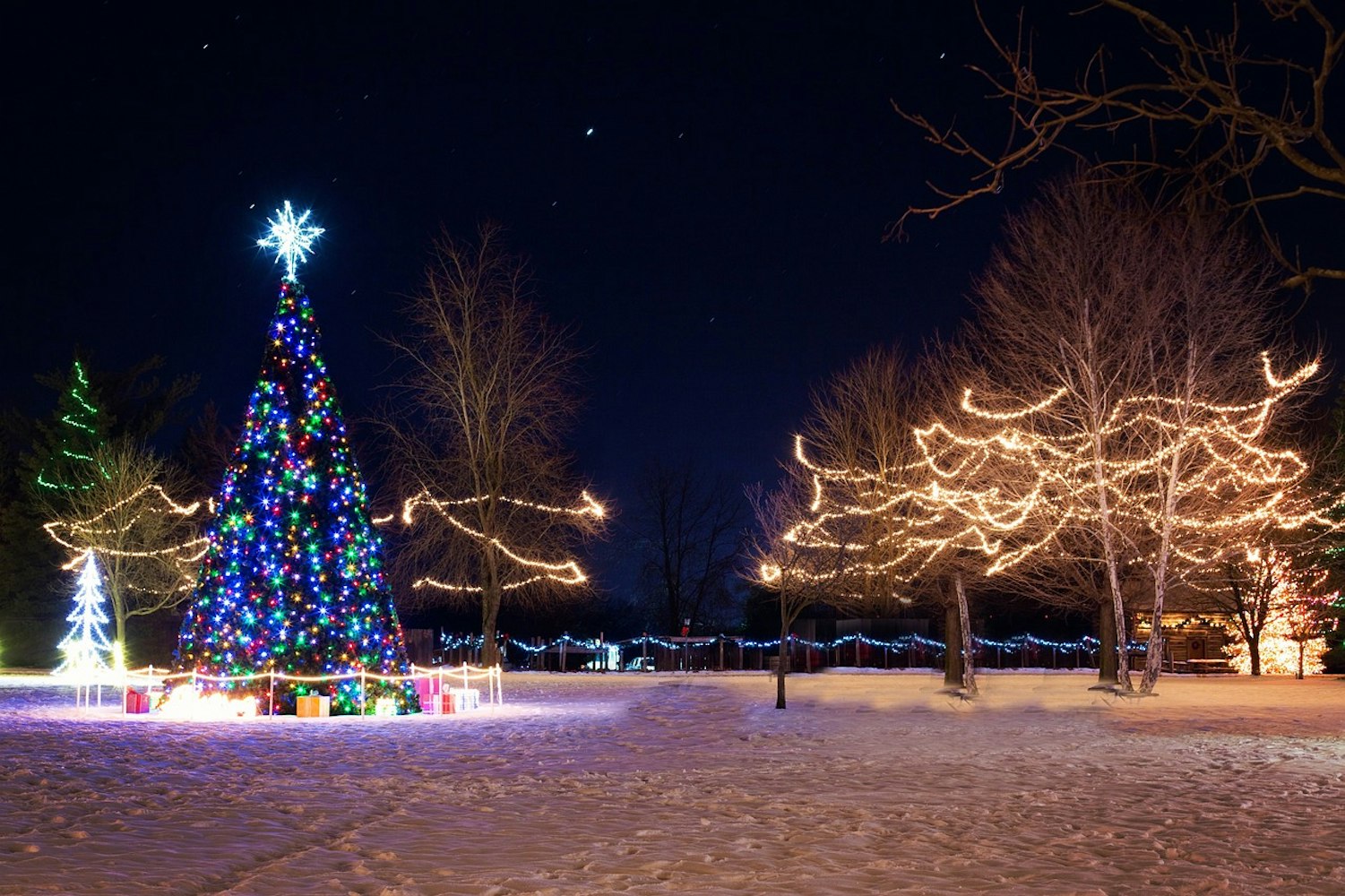
이미지 출처: JillWellington
다채로운 색상, 복잡한 디자인, 그리고 화려한 배열의 불빛들은 숨 막히는 광경을 만들어냅니다. 이들은 인기 있는 관광명소로, 방문객들이 일본 크리스마스의 매혹적인 세계에 몰입할 수 있도록 초대합니다. 분주한 거리를 거닐든 역사적인 동네를 탐험하든, 이러한 밝은 불빛을 목격하는 것은 크리스마스 시즌의 마법과 경이로움을 포착하는 매력적인 경험입니다.
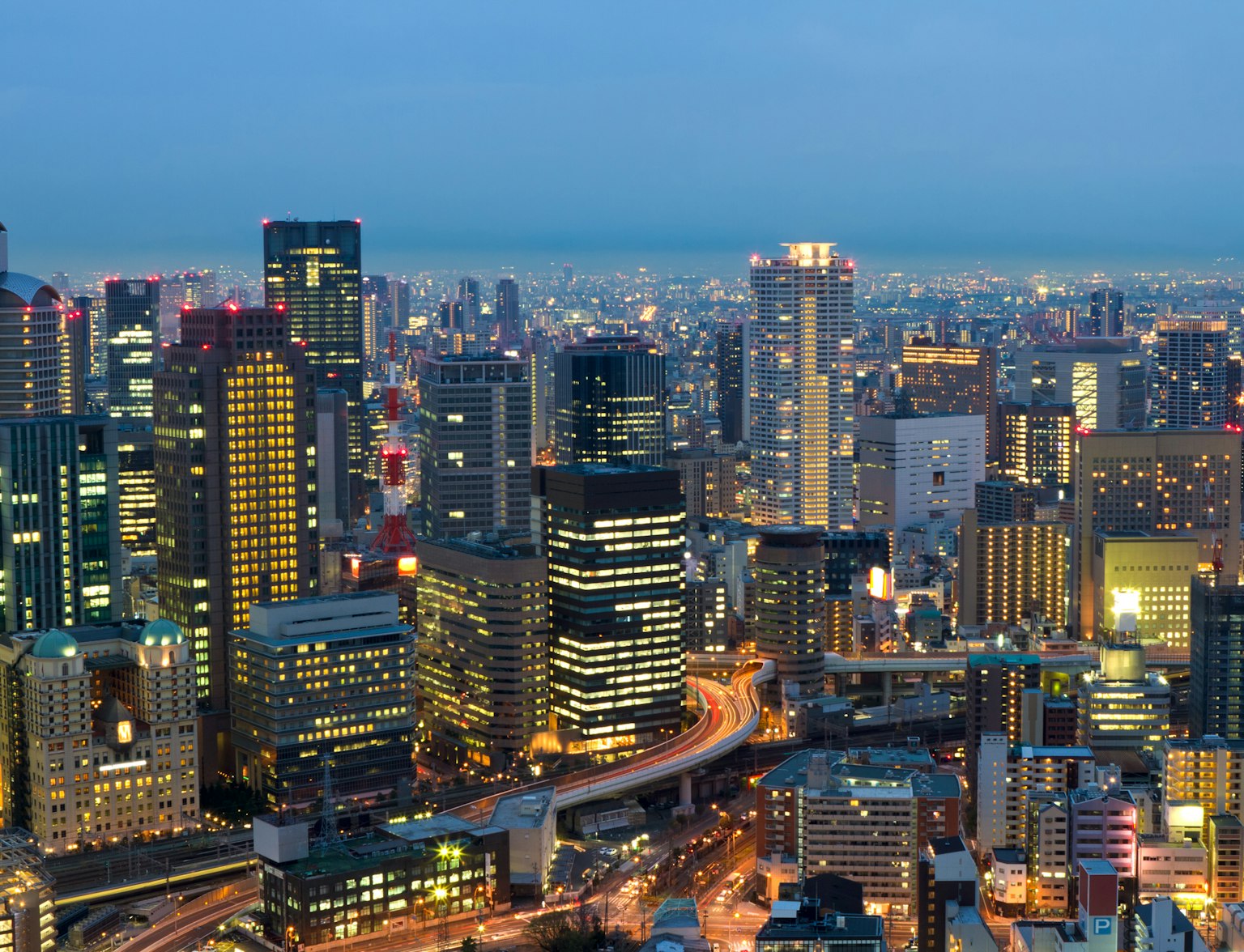
오사카의 숨막히는 도시를 하루 종일 개인 가이드 투어로 발견하세요!
일본에서의 크리스마스는 로맨스와 동의어가 되었으며, 이러한 개념은 휴일이 가족 중심인 서양 문화에서는 다소 이질적으로 느껴질 수 있습니다. 이 변화는 20세기 후반에 일본이 서양의 전통을 수용하고 자국의 문화 내러티브에 맞게 조정하기 시작하면서 시작되었습니다. 특히 크리스마스 이브는 로맨틱한 의미가 가득한 날로 자리 잡아 '애새끼들을 위한 밤'이라는 별명을 얻게 되었습니다.

이미지 출처: Văn Thắng
일본의 커플들은 이 기회를 이용해 서로의 감정을 표현하며, 종종 정성스러운 선물과 사랑의 편지를 교환합니다. 전국의 고급 레스토랑은 커플들이 아늑한 촛불 저녁 식사를 원하기 때문에 예약이 가득 차는 경우가 많습니다. 거리는 아름답게 장식되고 조명이 켜져 로맨틱한 분위기가 조성됩니다. 차가운 겨울 바람과 따뜻하고 화려한 불빛이 어우러져 잊지 못할 설정을 만들어냅니다. 크리스마스 이브는 또한 화려한 결혼 제안의 인기 있는 시기로, 이러한 아름다운 환경을 중심으로 계획되는 경우가 많습니다. 일본에서의 크리스마스에 대한 이 독특한 해석은 휴일 시즌이 단순한 문화적 구경거리가 아닌 사랑과 동행의 축제가 되도록 합니다.
일본의 크리스마스는 일본 크리스마스 케이크라는 기대되는 전통을 언급하지 않고는 완정하지 않을 것입니다. 영국과 다른 서양 국가에서 익숙한 밀도가 높은 과일 가득한 케이크와는 달리, 일본의 크리스마스 케이크 또는 '쿠리수마스 케키'는 가볍고 공기처럼 부풀어 오르는 Delights입니다. 일반적으로 스폰지 케이크로, 휘핑크림으로 덮여 있고, 잘 익은 빨간 딸기로 장식됩니다.

이미지 출처: Jasmine Bartel
크리스마스 케이크는 일본에서 크리스마스 시즌의 상징이 되었으며, 빨간색과 흰색은 축제의 정신과 국기를 반영합니다. 위에 얹힌 딸기는 겨울철에 사치스러운 품목이 되어 이 시기에 특별한 간식이 됩니다. 제과점들은 몇 주 전에 이러한 케이크를 판매하기 시작하며, 가족들은 흔히 크리스마스 이브 저녁 식사 후에 케이크를 즐깁니다. 그 달콤함과 식감은 물론, 축제 간식으로서의 중요성 덕분에 일본 크리스마스 케이크는 이 시기를 특별하게 기념하는 맛있는 전통이 됩니다.
일본에서 크리스마스를 축하하는 동안의 가장 이례적이면서도 매력적인 전통 중 하나는 KFC를 먹는 관습입니다. 맞습니다, 켄터키 프라이드 치킨은 많은 일본 가정의 크리스마스 필수품으로 자리 잡았지만, 이는 우연이 아닙니다. 이는 1970년대에 일어난 매우 성공적인 마케팅 캠페인의 결과입니다. '크리스마스를 위한 켄터키' 또는 '쿠리수마스 니와 켄타키!' 캠페인은 1974년 KFC 일본에 의해 시작되었습니다. 크리스마스가 일본에서 널리 축하되지 않던 시기에 KFC는 휴일 시즌 동안 요리의 공백을 채울 기회를 보았습니다.
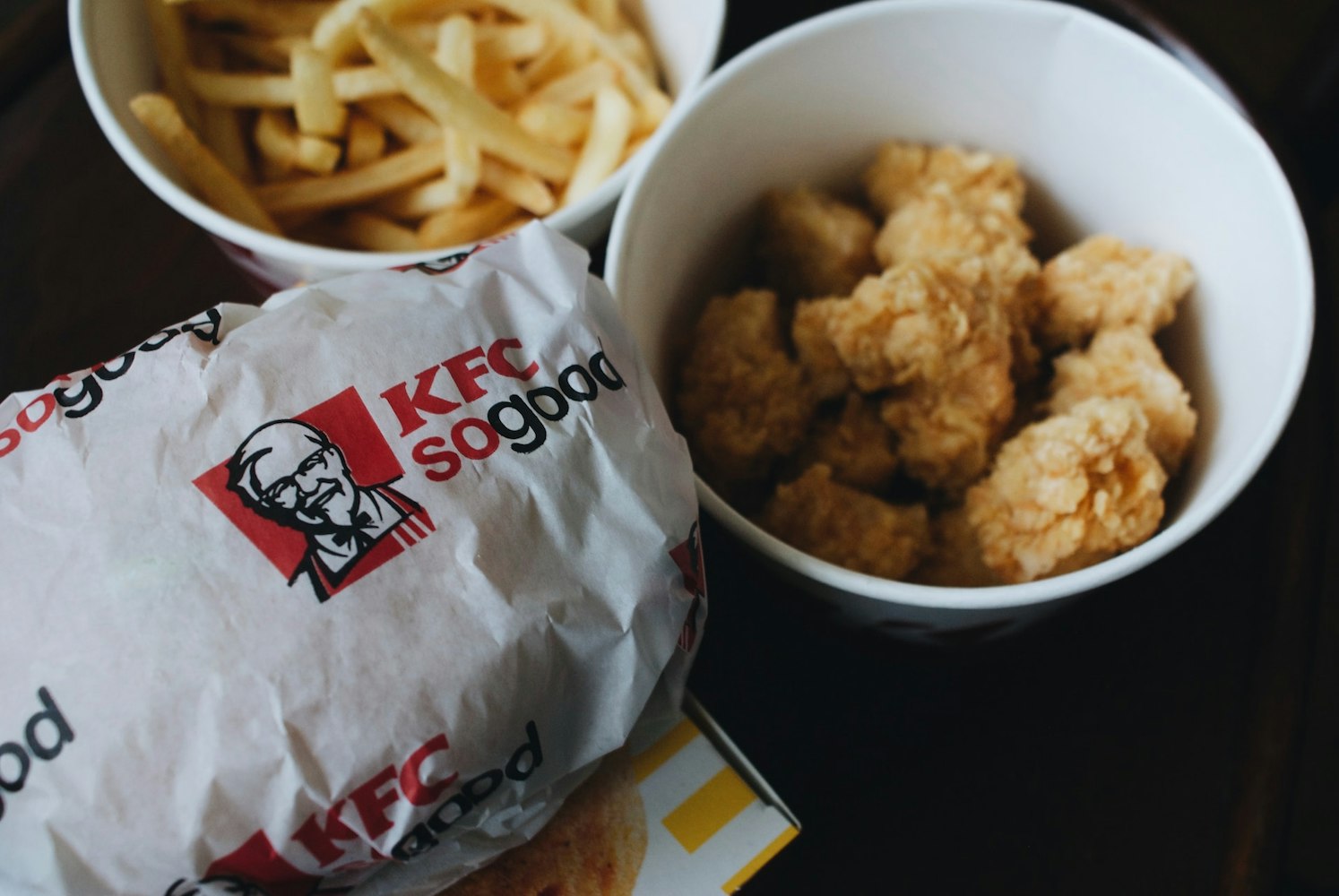
이미지 출처: Aleks Dorohovich
이 캠페인은 크리스마스를 축하하는 방법으로 프라이드 치킨을 즐기는 아이디어를 홍보했습니다. 시간이 지남에 따라 이 아이디어는 발전하였고, 이제는 일본 크리스마스 전통에 깊이 뿌리박혀 있습니다. 이 때문에 사람들은 KFC 크리스마스 저녁 식사를 위해 몇 주 또는 몇 달 전에 주문하여 놓치지 않도록 합니다. 이는 영리한 마케팅 캠페인이 소중한 국가 전통으로 변모한 흥미로운 예시로, 일본의 크리스마스를 독특한 경험으로 만들어 줍니다.
일본의 크리스마스 선물 교환은 서양 전통과 일본적인 감각이 아름답게 조화된 것입니다. 이 전통은 비교적 최근의 것이지만, 많은 일본 관습의 핵심인 배려, 존중, 애정의 가치와 깊이 얽혀 있습니다. 선물의 금전적 가치를 강조하기보다는, 행위 뒤의 사려 깊음에 중점을 두어 선물들이 종종 단순하지만 개인적인 것으로 교환됩니다.

이미지 출처: Lore Schodts
선물을 전달하는 행위 또한 경험의 본질입니다. 포장에 많은 주의를 기울여, 포장을 푸는 과정 자체가 즐거운 경험이 되도록 합니다. 전통적인 '노시' 종이와 장식들로 아름답게 장식된 선물은 거의 예술 작품처럼 느껴집니다. 게다가 크리스마스 이브가 로맨틱한 행사로 여겨지기 때문에, 커플들이 선물을 교환하는 것이 관습이 되어 전통에 감동을 더합니다. 일본의 크리스마스 선물 교환에 대한 접근은 서양 전통에 일본적 뉘앙스를 담아내어 그 경험을 친밀하고 따뜻하게 만들어 줍니다.
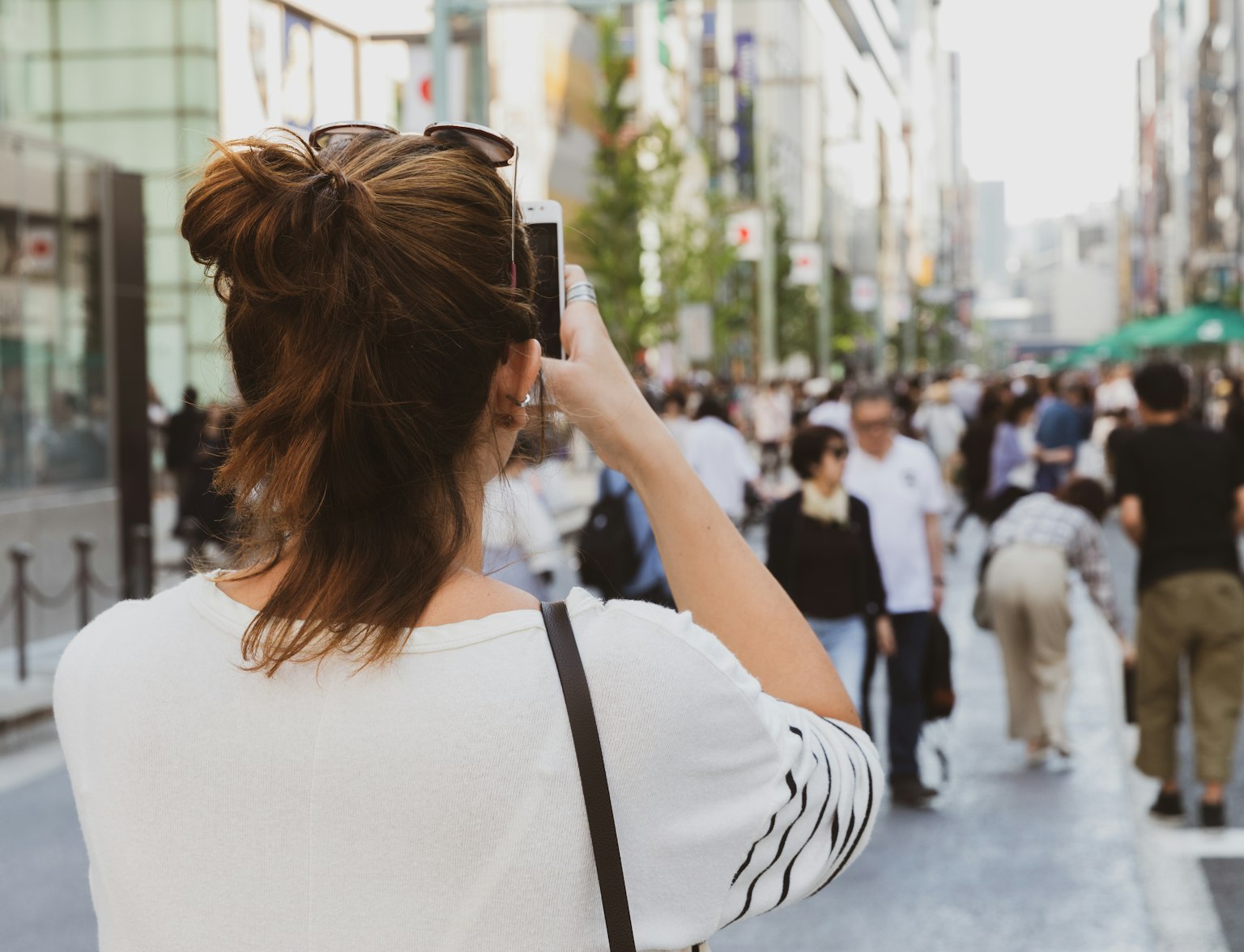
도쿄에서 선물을 찾는 분들에게 완벽합니다.
다른 크리스마스 전통과 마찬가지로, 일본은 산타클로스 개념을 받아들였습니다. 다만 몇 가지 문화적 조정을 거쳤습니다. 일본에서 산타는 '산타상' 또는 '호테이오쇼'로 알려져 있습니다. 산타상은 서양의 산타와 같은 빨간 옷과 선물 전하는 역할을 가지고 있지만, 호테이오쇼는 불교 민속에서 유래한 다소 다른 배경을 가지고 있습니다. 산타상은 아이들에게 선물을 주는 재미있는 남자처럼 묘사됩니다.
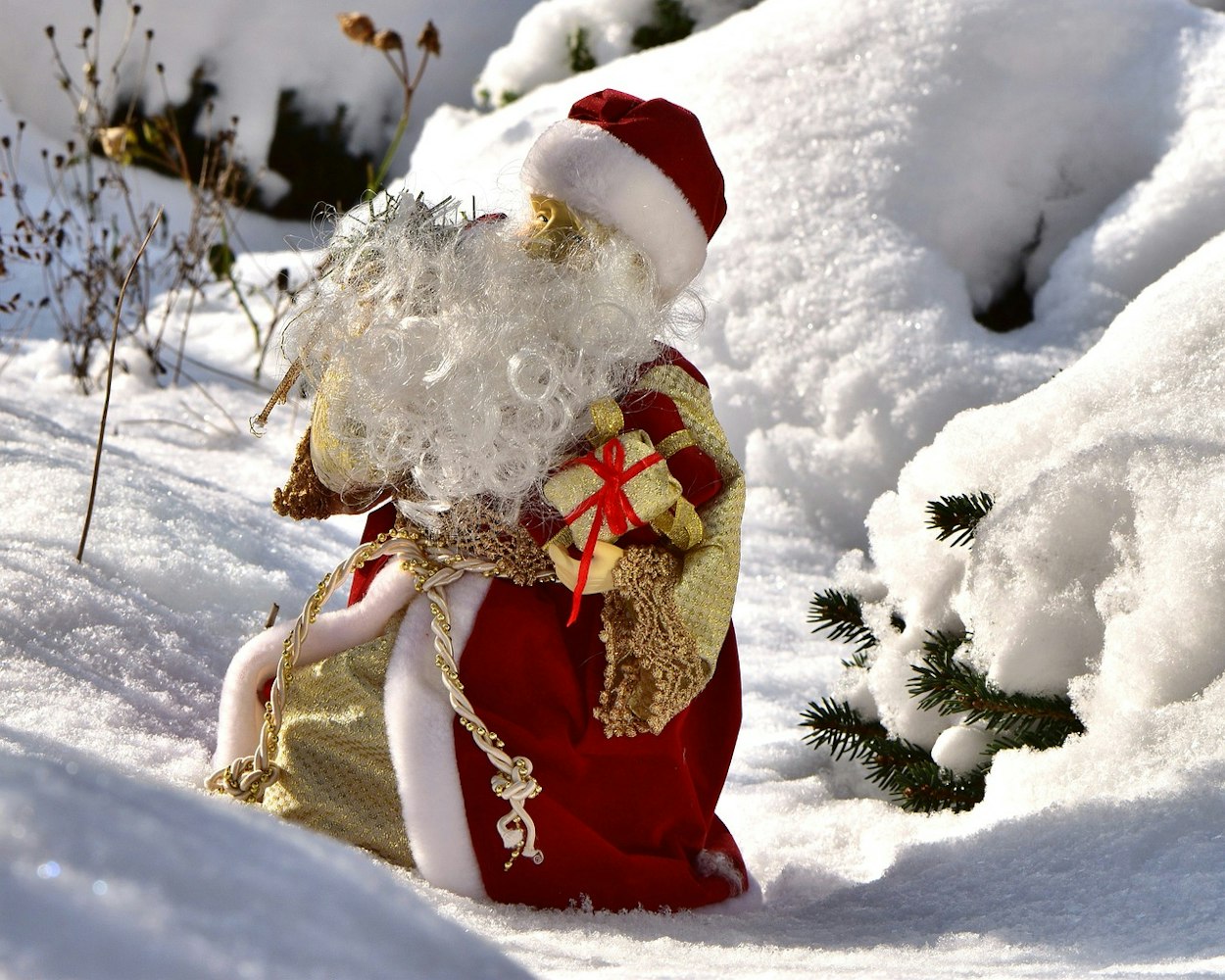
이미지 출처: HelgaKa
한편 호테이오쇼는 종종 불교 승자로 묘사되며, 아이들이 잘 행동하고 있는지 지켜보는 능력이 있는 것으로 여겨집니다. 서양의 산타가 통과하는 굴뚝 대신, 호테이오쇼는 선물을 넣고 다닐 수 있는 큰 자루를 가지고 있으며, 착한 아이들에게 보상을 주기 위해 주택 주위를 떠돌아다닌다고 믿어집니다. 일본의 산타클로스 관습은 서양과는 다소 다르지만, 기쁨을 전파하고 좋은 행동을 보상하는 공통된 스레드는 크리스마스의 전반적인 정신을 강조합니다.
음악은 일본의 크리스마스 시즌 동안 축제 분위기를 구성하는 중요한 요소입니다. 이는 익숙한 서양 곡과 일본의 현지 곡들이 융합되어, 일본에서 독특한 크리스마스를 축하하는 방식에 맞는 특별한 음악적 배경을 만듭니다. '고요한 밤'과 '징글벨'과 같은 서양의 고전들은 일본의 유명한 크리스마스 곡이 되고, 일본 버전이 쇼핑몰과 크리스마스 조명 디스플레이를 통해 흔히 흘러나옵니다. 그러나 일본에는 크리스마스를 상징적으로 대표하는 곡들이 있습니다. 예를 들어, 다츠로 야마시타의 '크리스마스 이브'는 1983년 출시 이후 일본 크리스마스의 필수곡이 되었습니다.
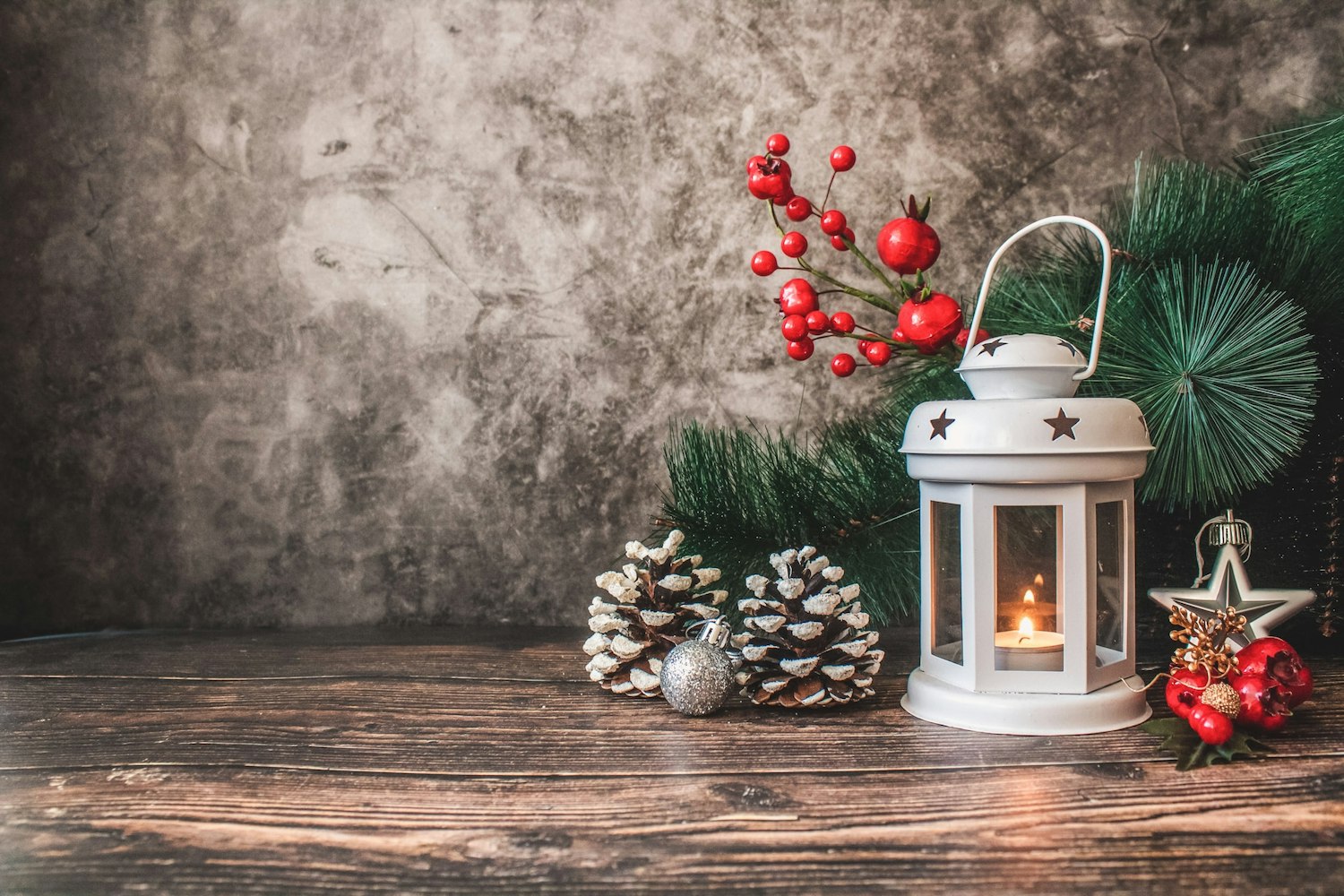
이미지 출처: Tijana Drndarski
이 노래는 로맨틱한 가사와 아름다운 멜로디로 일본의 크리스마스를 사랑의 시간으로 해석하고 있으며, 부드럽고 로맨틱한 곡 외에도 일본은 크리스마스 음악을 즐겁고 경쾌하게 만드는 접근을 받아들이고 있습니다. 블루 하츠의 '코이비토가 산타클로스'는 이러한 신선하고 즐거운 사업으로 만들어진 크리스마스 노래입니다. 일본의 크리스마스 음악의 에클레틱한 혼합은 전통적 요소와 현대적 요소를 모두 포함하고 있으며, 이는 일본 크리스마스 경험의 고유한 해석을 반영합니다 - 전통과 일본 문화적 감각이 융합된 서양 휴일의 독창적인 해석입니다.
크리스마스 이후 일본은 '오쇼가츠'와 관련된 새해를 준비하며 변화를 겪습니다. 이 준비의 핵심 부분은 '오소우지'라는 연말 청소 전통입니다. 이 관습은 단순한 물리적 정리 이상의 의미를 지니며 깊은 문화적 및 상징적 의의를 가지고 있습니다. 이는 일본인의 청결, 갱신의 윤리 및 새해를 상쾌하고 긍정적인 기운으로 맞이하는 중요성을 반영합니다. 오소우지는 주거지, 학교, 직장 등 자신의 환경을 철저하게 청소하는 관습으로, 공간의 불필요한 물품 정리, 바닥을 청소하고, 창문을 닦는 등의 작업이 포함됩니다.

이미지 출처: Gil Ribeiro
하지만 그 의미를 넘어서, 오소우지는 영적인 목적을 지닌 의식으로 여겨집니다. 이는 지난해의 후회와 불행, 그리고 부정성에서 벗어날 기회를 상징하며, 청소를 통해 남아있는 '케가레'(불결)를 쓸어내고 새해의 행운, 행복 및 긍정적인 에너지를 위한 길을 열어줍니다. 이처럼 물리적 청결과 영적 갱신이 조화롭게 어우러진 오소우지는 일본 문화의 본질적인 측면인 조화, 균형 및 새로운 시작에 대한 경의를 보여줍니다.
일본의 크리스마스 해석은 서양의 영향을 받은 것과 전통 일본의 미적 감각이 매혹적으로 융합된 것입니다. 이러한 문화적 혼합은 일본의 크리스마스 장식 접근 방식을 통해 아름답게 나타납니다. 일본은 크리스마스 나무와 조명과 같은 서양의 요소를 빌리면서도, 고유한 터치를 포함하여 휴일 시즌의 독특한 일본적 경험을 제공합니다. 일본의 도시들은 정교한 디자인과 혁신적인 빛 쇼가 어우러져 장관을 이루며 '일루미'라고 불리는 조명 장식이 크리스마스의 중요한 요소입니다.

이미지 출처: Anton Belitskiy
가정이나 사무실에서는 오리가미 장식이나 '츠루시-비나'라는 전통적인 걸이 인형으로 장식된 작고 아담한 크리스마스 나무를 찾을 수 있습니다. 일본은 또한 크리스마스 대신 새해까지의 날수를 카운트하는 '모치'(찹쌀떡) 화환과 같은 독특한 어드벤트 캘린더를 제공합니다. 도쿄의 반짝이는 조명에서 가족의 집의 섬세한 오리가미 장식까지 일본의 크리스마스 장식은 세계적인 영향과 소중한 지역 전통의 완벽한 조화를 통해 아름다움을 창조하는 일본의 능력을 반영합니다.
일본의 크리스마스는 재미있고 독특한 전통으로 가득 차 있습니다. 도시에서의 아름다운 조명과 로맨틱한 축하, 그리고 KFC를 먹는 놀라운 전통에 이르기까지 일본은 휴일을 특별한 방식으로 축하합니다. 익숙하게 느껴질 수 있는 것과 새로운 관습의 혼합은 이 시즌을 흥미롭고 다르게 느끼게 합니다. 정말 특별한 경험을 할 수 있는 훌륭한 시간입니다.
다음 여행을 고려하고 있다면, 크리스마스에 일본을 방문하는 것은 어떨까요? Trip to Japan에서는 일본 크리스마스의 마법을 가까이서 경험할 수 있는 신중하게 계획된 투어를 제공합니다. 유명한 크리스마스 케이크를 맛보거나 '오소우지'라는 연말 청소 전통에 동참하고 싶다면, 저희가 여러분을 도와드리겠습니다. 저희 웹사이트를 방문하여 투어 옵션을 확인하고 잊지 못할 휴일을 계획해 보세요!
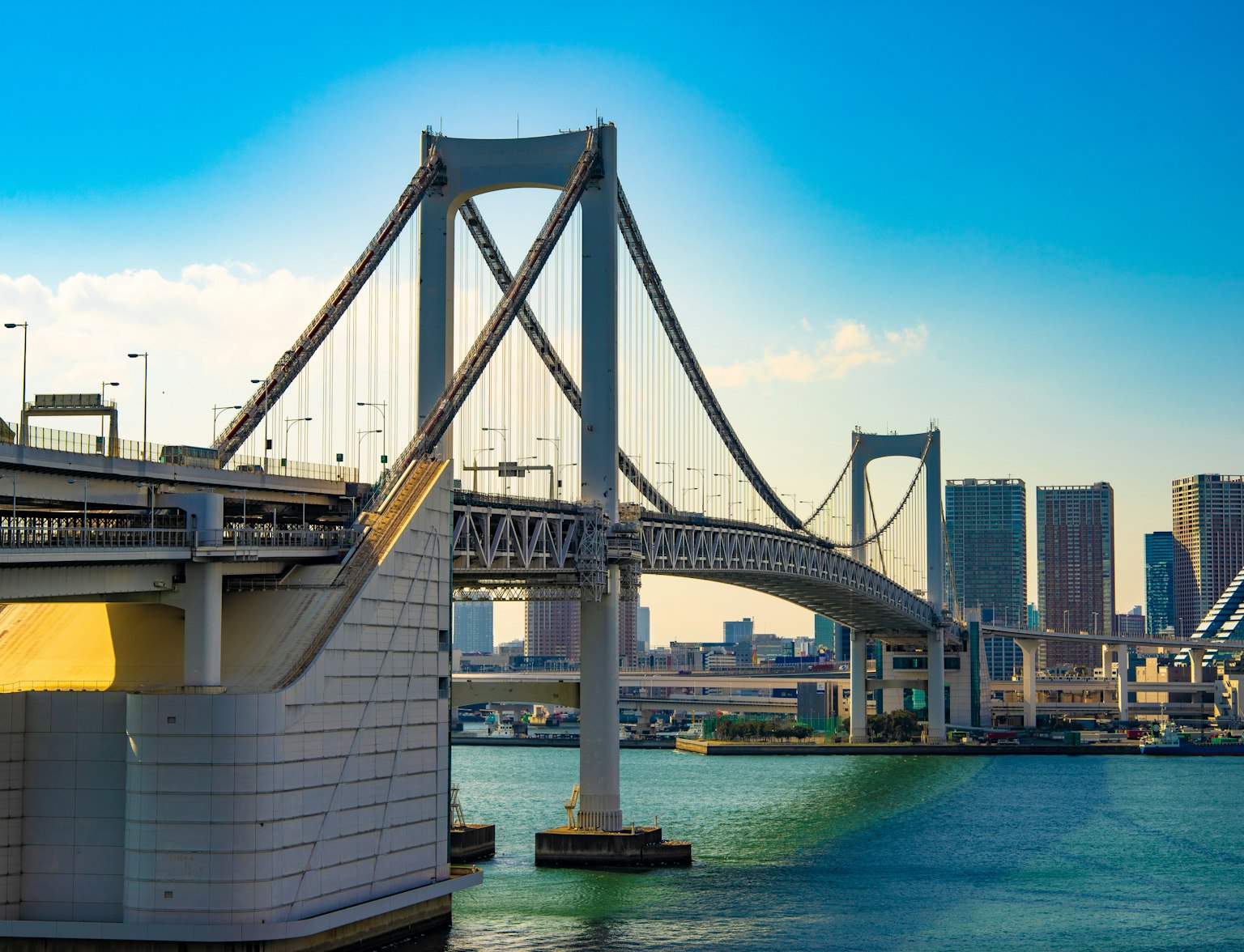
하루 만에 도쿄의 숨겨진 보물을 발견하세요!



